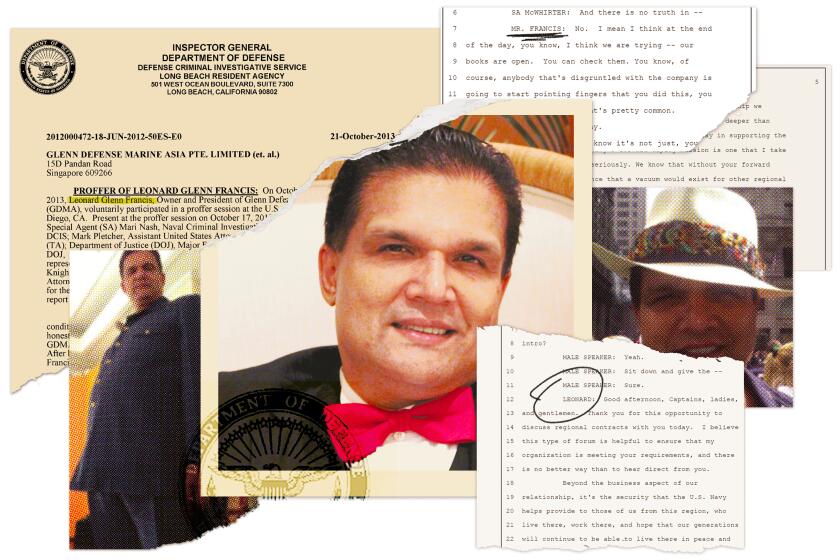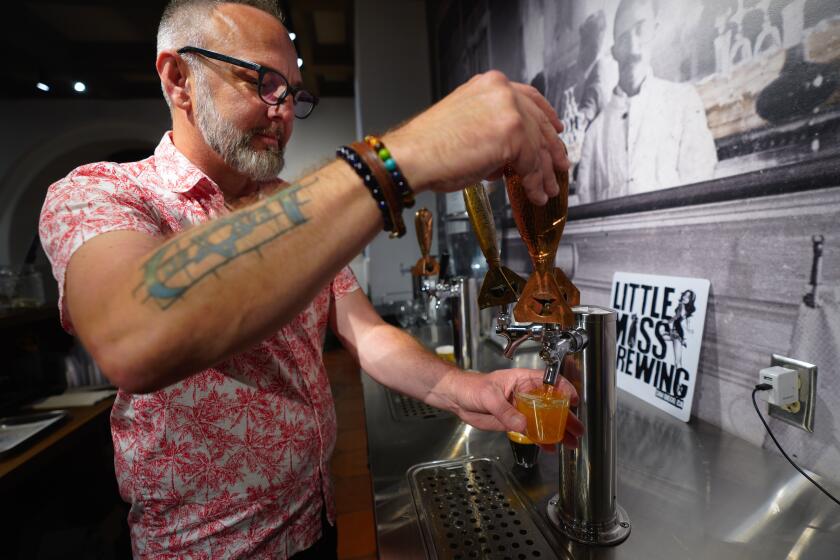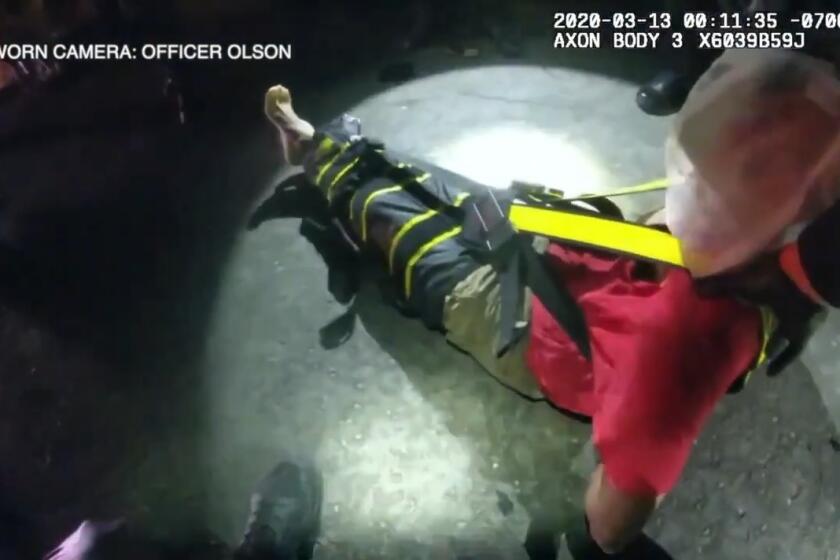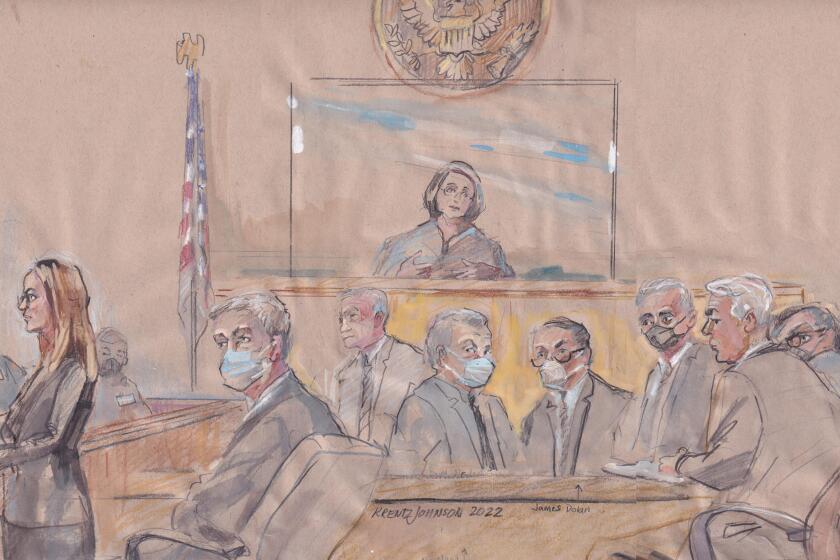Judge sentences Azano to three years in federal prison

U.S. District Court Judge Michael Anello handed down the sentence at a 90-minute hearing for Jose Susumo Azano Matsura. The judge also levied a fine of $560,995 to the businessman — an amount that equals the total illegal contributions he made to ca
A wealthy Mexican businessman convicted of making illegal campaign contributions in a public corruption scandal that roiled San Diego’s political establishment, was sentenced to three years in federal prison Friday.
U.S. District Court Judge Michael Anello handed down the sentence at a 90-minute hearing for Jose Susumo Azano Matsura. The judge also levied a fine of $560,995 to the businessman — an amount that equals the total illegal contributions he made to campaigns in the 2012 San Diego mayor’s race.
Anello also ordered Azano, a Mexican citizen with no permanent status in the U.S., to be taken into custody immediately. The businessman has been out on bond since he was arrested in 2014.
But Anello, following federal law and over the objections of his lawyer Knut Johnson, determined that Azano was a flight risk, with both the means and now the incentive — avoiding a prison term — to abscond to Mexico where he has family, property and money.
That seemed to stun Azano, who lowered and shook his head as a large contingent of his family, including his U.S. citizen wife and older son, grimly looked on.
Azano was convicted at a five-week long jury trial last year on 35 charges of conspiracy and making illegal contributions in the 2012 mayor’s race. Federal law bans foreign citizens without legal status in the U.S. from making campaign contributions
The jury didn’t reach a verdict on a charge that he illegally possessed a firearm, but he was tried again on that charge in July and was convicted.
He was accused of funneling cash and campaign services to the campaigns or committees supporting then District Attorney Bonnie Dumanis and former Mayor Bob Filner.
Johnson argued that Azano was a victim of both a broken campaign finance system and cunning campaign professionals. The system rewards fundraisers for gathering contributions by nearly any means, and benefits canny politicians who don’t ask too many questions or look the other way about the source of the funds, he said.
Johnson said that Azano’s wealth made him a prime target. “Everyone had a hand in his pockets,” he told Anello.
Federal prosecutors had a darker view of Azano. They said he clandestinely injected himself and his money into the mayor’s race in order to “buy a mayor” who would help him develop bay front property in a “Miami West” project.
Defense lawyers scoffed at that notion and said there was little hard evidence to support it.
He used straw donors, shell holding companies and businesses controlled by Marc Chase, a La Jolla car dealer who also pleaded guilty in the case, to hide his donations. “Every penny was Azano’s,” prosecutors wrote in court papers, “but not a single penny was contributed in his name.”
Among the contributions was $100,000 to an independent committee supporting Dumanis, $120,000 to Filner, and $60,000 combined to the county Democratic Party and the Democratic Congressional Campaign Committee.
He paid another $75,000 for the services of Ravneet Singh, a campaign services expert adept at social media and Internet based campaigning for work on Dumanis’ campaign, and another $192,000 for Filner work.
Singh was sentenced to 15 months in prison, and is appealing his conviction, as Azano plans to do also.
In handing down the sentence Anello said it was “an unusual case that presents unusual difficulties.” He noted Azano’s history of philanthropy in the U.S. and Mexico, his law-abiding life and strong support from family and others.
On the other hand he said the crimes amounted to an effort to undermine the electoral system and were “egregious”.
Government lawyers sought a sentence of 72 months, or six years. But Anello said that was too harsh as was the 10 years the federal probation agency recommended. Johnson sought a term of probation only — no prison time — that Anello discarded as too light.
The three-year term he decided was appropriate to punish Azano.
Before he was sentenced Azano spoke briefly, and said if he knew then what he knows now he would not have contributed to any campaign — and vowed never to do so again.
“If I become a U.S. citizen, I will never, ever donate to a campaign,” he said. His application for a green card is pending but Johnson said he has been issued an employment authorization card by the federal government.
However if his convictions stand on appeal Azano likely faces deportation from the U.S.
Azano made his fortune building a Mexico City-based business that developed surveillance technology and cyber security products that were sold to the government in Mexico and elsewhere. Johnson said in a sentencing memorandum that while wealthy Azano was “not close to being the billionaire as alleged by the government.”
He also wrote that Azano has assisted both Mexican and U.S. law enforcement over the years to secure the release of citizens of both countries who had been kidnapped in Mexico. He wrote Azano had helped authorities rescue 17 U.S. citizens and many Mexicans.
It was that work and the danger it posed for Azano that led him to move his family to a mansion in Coronado and eventually hire a retired San Diego police detective, Ernie Encinas, to provide security.
Encinas was the conduit who introduced Azano to local politics, and served as the go-between from Azano to the campaigns. He eventually cooperated with federal investigators in the probe, recording conversations and providing information. He has pleaded guilty and is awaiting sentencing.
Johnson blamed Encinas for roping Azano into the scheme and said he was “driving those donations” in order to raise his own profile in San Diego political circles.
The sentencing memo also alleged that Dumanis, who has consistently denied knowing of Azano’s help on her campaign and said she only met him briefly, knew he was a foreign citizen and could not contribute.
Dumanis, now running for a seat on the Board of Supervisors, said the charge was a desperate attempt to lessen his prison sentence. She also said in a statement that she was “never made aware” Azano was a foreign national.
Also on Friday Carl DeMaio, who lost the race to Filner, sent a letter to Anello urging a maximum sentence for Azano, whose illegal funds he said tilted the election toward Filner.
Anello said the letter came in too late to be considered as a factor in his decision.
Twitter: @gregmoran
The latest news, as soon as it breaks.
Get our email alerts straight to your inbox.
You may occasionally receive promotional content from the San Diego Union-Tribune.








